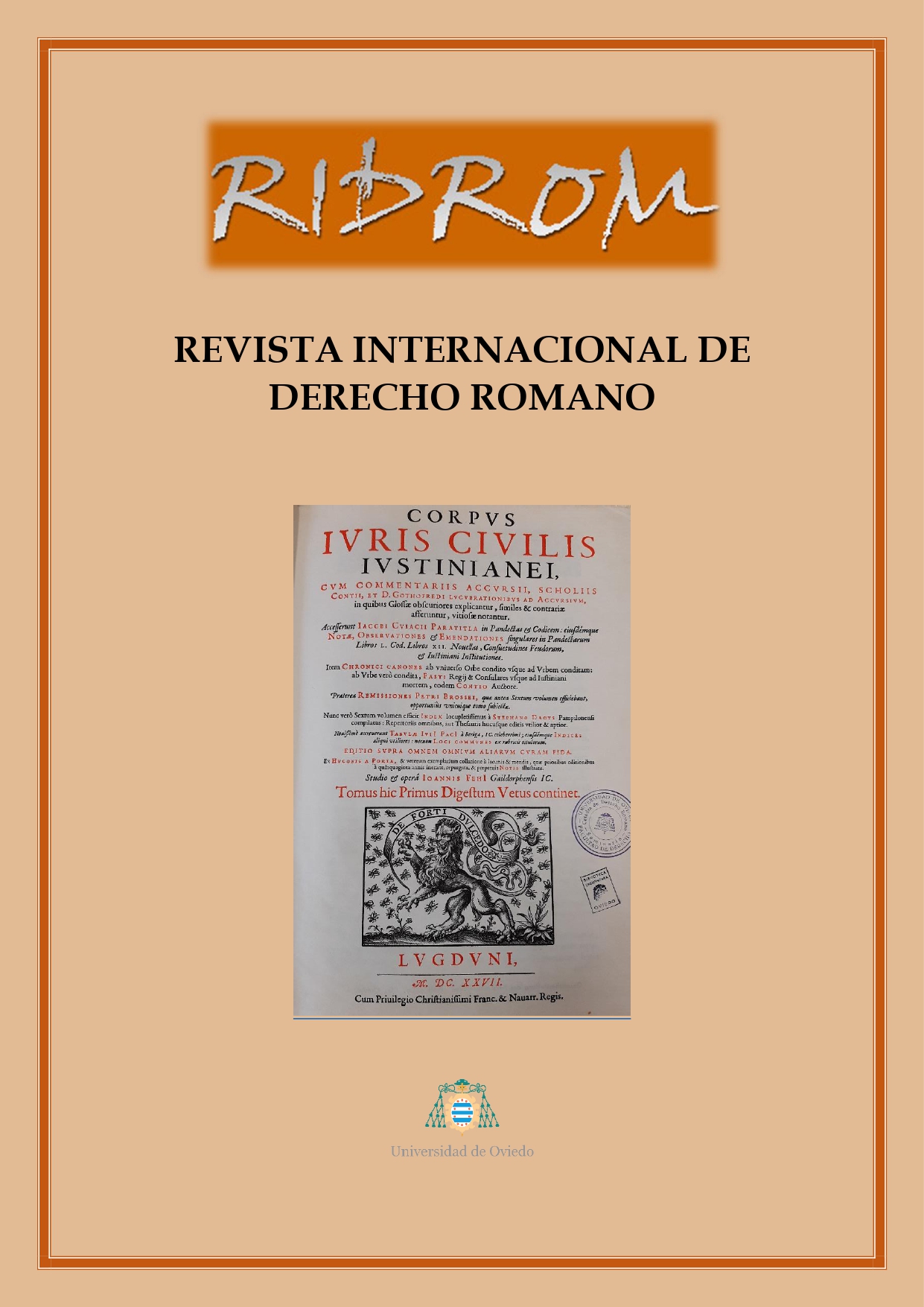Abstract
With this study we make an analysis of the historical - legal causes that gave rise to and evolved the corporal legal concept of obligation to the abstract legal concept of obligation. The creation of this concept involved the elimination of the idea of the personal power of the creditor and of the debtor’s imprisonment, chains and physical subjection. We also analyze the evolution of the personal execution of the subject, his slavery, and even death to satisfy the claim of his creditor, as well as the evolution towards a system of exclusively universal patrimonial liability for debts. Both achievements were the fruit of the genius of Roman legal civilization, which acted in various directions, legislative, procedural and jurisprudential for centuries. These solid and enduring foundations of the law of obligations have passed into our modern civil systems. Specifically, article 1008 of our Civil Code provides: "Every obligation consists in giving, doing or not doing something"; and article 1911: "The debtor is responsible for all his present and future assets".
References
- Aubert J-J., “Commerce”, en The Cambridge Companion to Roman Law, 2015, pp. 221 y ss.
- Biscardi A., Dottrina romana dell`obligatio rei, (Milán, 1991).
- Blanco Rodríguez ML. “El bonorum emptor como sucesor”, en Fundamentos Romanísticos de Derecho Contemporáneo, vol. VIII (BOE; 2021).
- Bonfante P. Corso di Diritto Romano, Vol. IV, Le Obbligazioni, (Milán, 1979).
- Burdick, W. The Principles of Roman Law and their relation to Modern Law, 1938.
- Daza Martínez J. y Rodríguez Ennes L., Instituciones de Derecho Privado Romano, 2009.
- Dedek, H y Schermaier, M., Obligation (Greek and Roman), en Enciclopedia of Ancient History (2011).
- Fernández Barreiro A. “Las Fuentes de las Obligaciones en relación con el sistema de acciones en el derecho clásico”, en Estudios Murga, (1994).
- Fernández de Buján A., Derecho Privado Romano, Iustel, 2011.
- Fuenteseca M., Lectiones, (2021).
- Fuenteseca M., “Dare facere oporteret y los orígenes de la obligatio ex contractu”, en RIDA, (2008).
- Giofreddi C., Diritto e Processo nelle antiche forme giuridiche romane (Roma, 1955).
- Guarino A. Profilo del diritto romano, Jovene Editore, Nápoles, 1989.
- Hollander D., Money in the Late Roman Republic, 2007, Leiden/Boston.
- Ibbetson D., “Obligatio in Roman Law and Society”, en The Oxford Handbook of Roman Law and Society, (Oxford, 2016).
- Kaser M., Derecho Privado Romano, Edición BOE, Madrid, 2022.
- Moshenskyi S. “History of the Weksel: Bill of Exchange and Promissory Note”, 2008.
- Obenchain R. Roman Law of Bankruptcy, en The Notre Dame Law Review, V. III, n. 4, (1928), pp. 169 - 200.
- Radin M. The Early Roman Law of Execution against a Debitor, en The American Journal of Philology, vol. 43, n.1 (1992), pp. 32 - 48.
- Rainer J. Michel, “La Fide Bona y el Pretor Peregrino”, en Estudios en Homenagem a Luiz Fabiano Correa, 2014.
- Rodriguez Ennes L. “La Obligatio y sus Fuentes”, en Studi In Onore di Antonio Metro, Tomo V (2010).
- Serrao F. La Iurisdictio del Pretore Peregrino, Milano, 1954.
- Silver M, “The Nexum contract as a “Strange Artifice””, en RIDA, n. 59 (2012).
- Sirks A.J.B. Delicts, en The Cambridge Companion to Roman Law, 2015.
- Talamanca M. “Obligación (Storia): diritto romano”, en ED. XXIX, (Milán, 1979).
- Tan T. Financial and Empire, Columbia University, New York, 2007
- Volterra E. Instituciones de Derecho Privado Romano, trad. Daza Martínez, Madrid, 1988.

This work is licensed under a Creative Commons Attribution-NonCommercial-NoDerivatives 4.0 International License.
Copyright (c) 2023 Guillermo Suárez Blázquez


